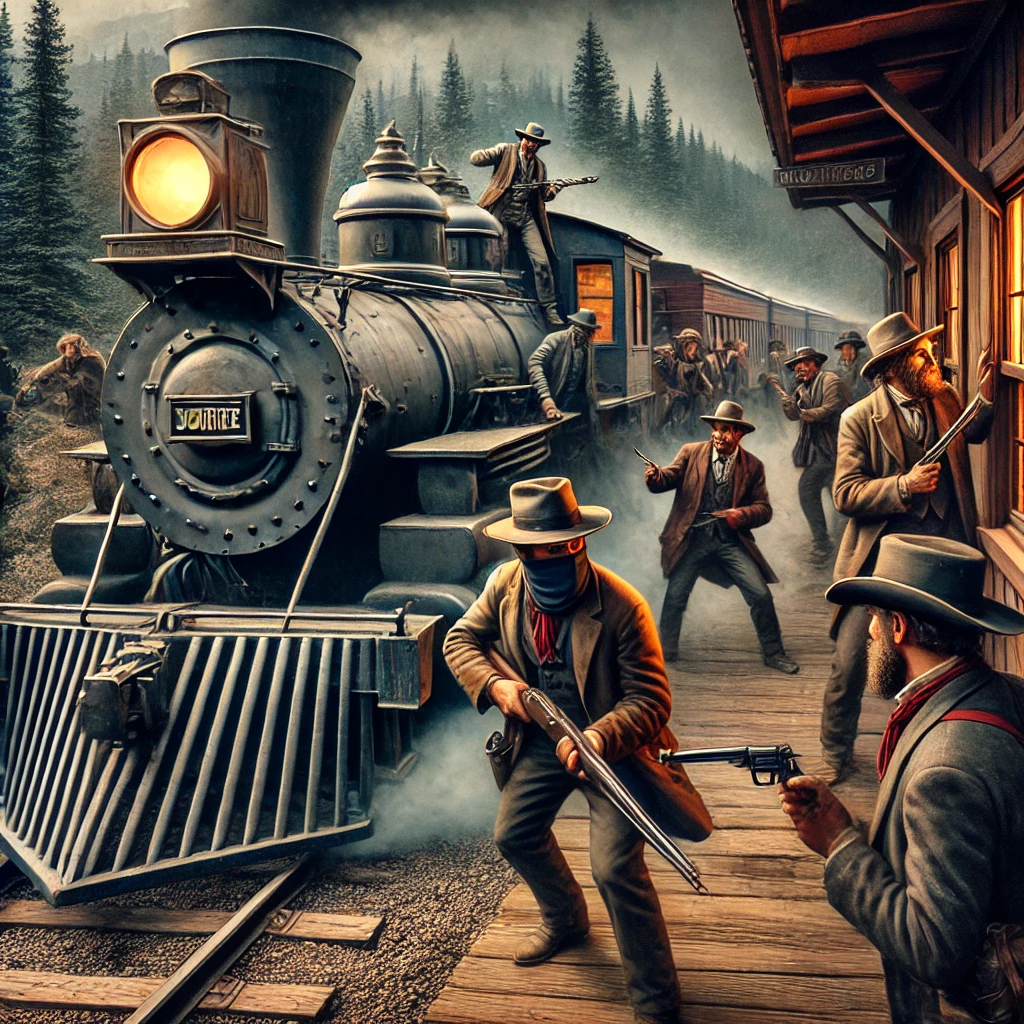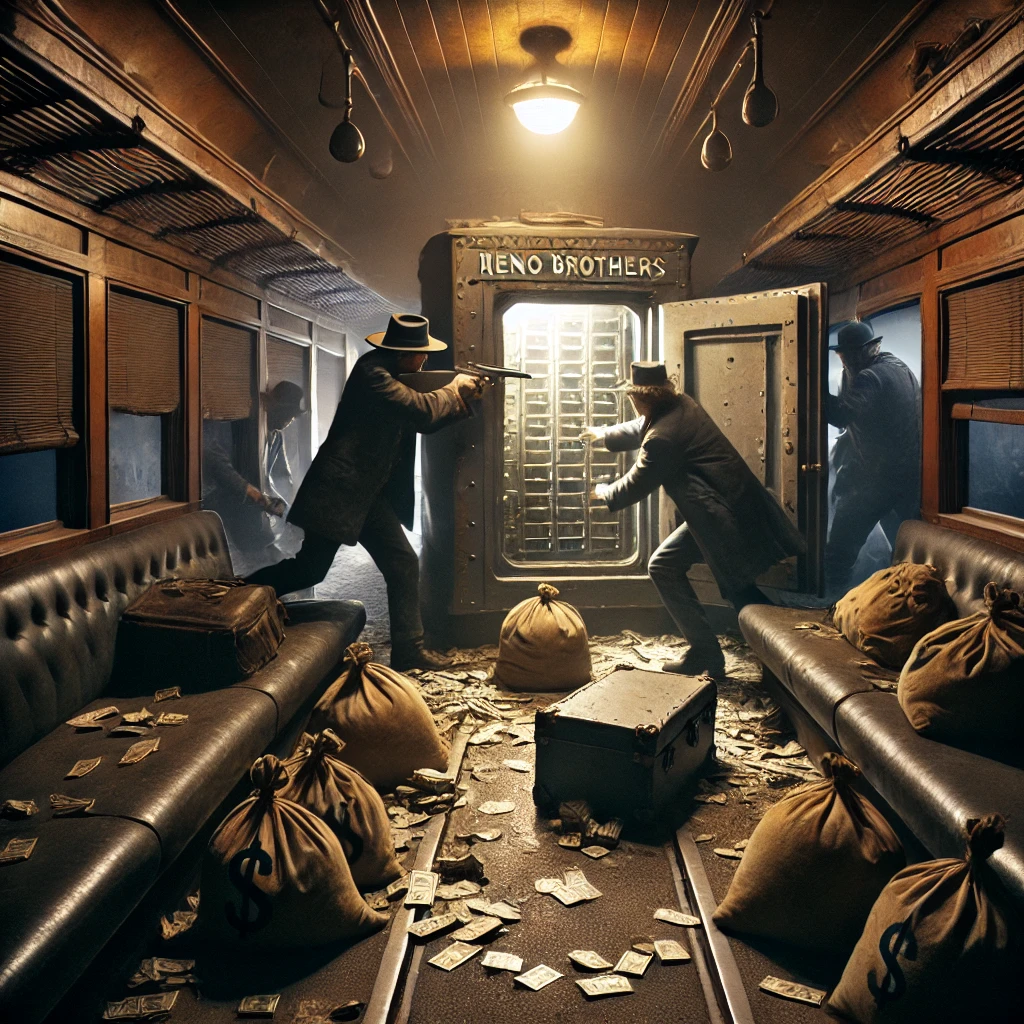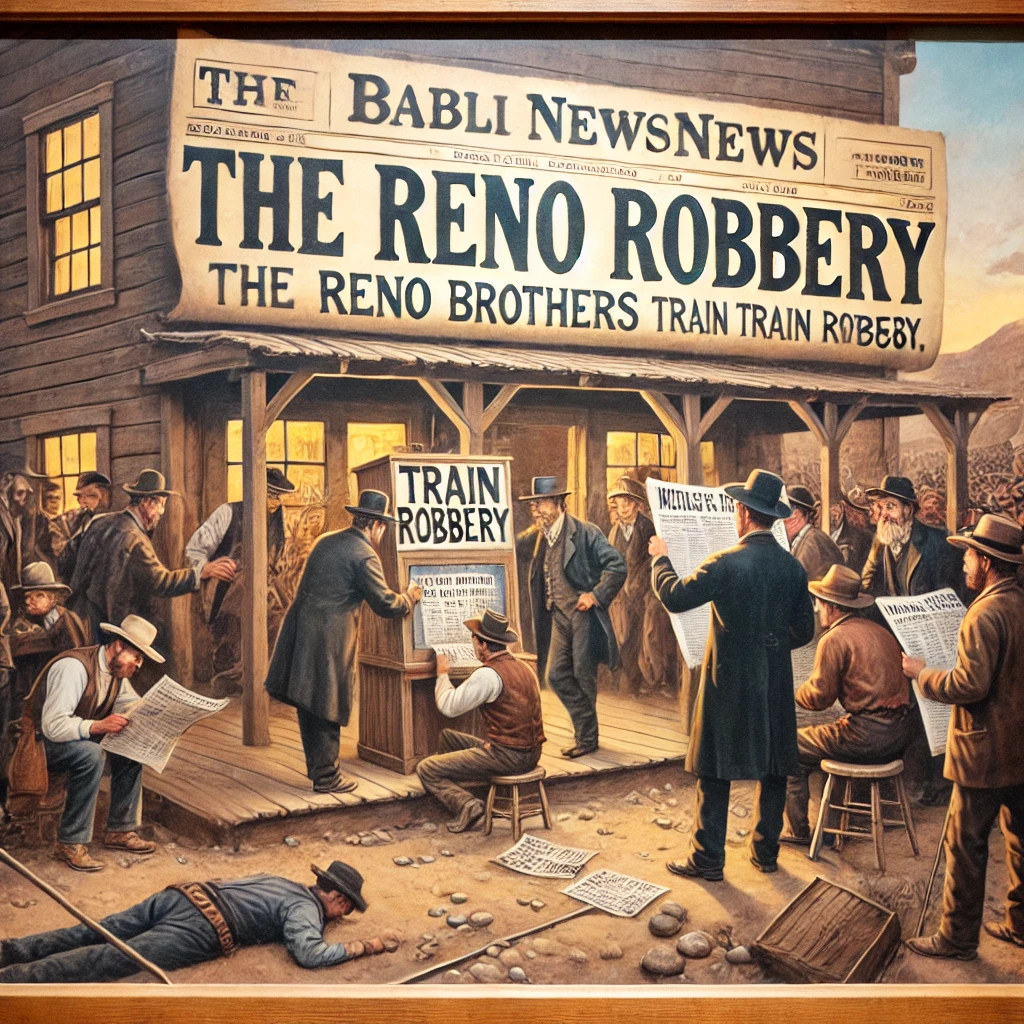On October 6, 1866, the Reno brothers made history by executing the first recorded train robbery in the United States, forever changing the landscape of crime in the American West. This audacious heist not only marked a significant moment in the annals of criminal history but also set a precedent for the rise of train robberies that would captivate the public imagination for decades to come.

The Reno Brothers and Their Motives
The Reno brothers, composed of Frank, John, and Simeon Reno, were notorious figures in the post-Civil War era. Hailing from Indiana, the brothers were initially involved in various criminal activities, including horse theft and petty crimes. As the railroads expanded rapidly across the country, they saw an opportunity for a more lucrative venture. Trains carried not only passengers but also valuable cargo, making them tempting targets for those looking to make a quick fortune.
On that fateful October day, the Reno brothers plotted to rob an express train belonging to the Adams Express Company, which was traveling through the small town of Marshall, Indiana. Armed with revolvers, they ambushed the train as it slowed to a stop, ordering the crew and passengers to comply with their demands. The heist was meticulously planned, showcasing their knowledge of the train’s schedule and operations.
The Heist and Its Aftermath
The robbery unfolded with a surprising level of precision. The Reno brothers managed to seize about $13,000, a significant sum for the time, and escaped into the surrounding woods. The success of the heist sent shockwaves through the community and raised alarms among law enforcement and railroad companies alike. The audacity of the Reno brothers set a new standard for criminal activity, leading to increased security measures for trains and their cargo.

The immediate aftermath of the robbery saw a frantic manhunt for the brothers. However, despite a series of close calls, the Reno brothers initially evaded capture. Their notoriety grew as reports of the robbery spread, capturing the public’s imagination and further popularizing the image of the outlaw in American culture. The brothers continued to commit additional robberies, leading to a string of incidents that would solidify their place in criminal history.
The Rise of Train Robberies in America
The Reno brothers’ successful train heist marked the beginning of a wave of train robberies across the United States. Inspired by their audacity, other criminals soon followed suit, with infamous figures like Jesse James and Butch Cassidy entering the fray. Train robberies became a staple of American folklore, with stories of daring escapades, lawmen, and outlaws capturing the imaginations of citizens and contributing to the mythos of the Wild West.
The romanticized portrayal of train robbers in literature and film further entrenched their legacy in American culture. Movies, novels, and songs began to celebrate the exploits of these outlaws, blurring the lines between hero and villain. This fascination with train robberies continued well into the 20th century, influencing the development of the Western genre and shaping the narrative of American history.

The Downfall of the Reno Brothers
Despite their initial success, the Reno brothers’ criminal empire would not last. In the years following the first train robbery, law enforcement intensified their efforts to capture the outlaws. In 1868, Frank and John Reno were eventually apprehended, leading to their trial and conviction. The brothers were sentenced to death, marking a dramatic fall from the heights of their infamy.
The legacy of the Reno brothers extends beyond their criminal activities. Their actions highlighted the vulnerabilities of the rapidly growing railroad industry, prompting significant changes in security and law enforcement practices. The fear and fascination surrounding train robberies influenced public perceptions of crime and punishment, ultimately shaping the American legal system’s response to such incidents.
The first train robbery in U.S. history, carried out by the Reno brothers on October 6, 1866, marked a pivotal moment in the narrative of American crime. Their audacious heist not only set the stage for a wave of train robberies that followed but also captured the public’s imagination, contributing to the enduring legend of the outlaw. As we reflect on this historical event, we recognize its impact on American culture and the evolving relationship between crime, law enforcement, and society during a transformative period in the nation’s history. The story of the Reno brothers serves as a reminder of the complex interplay between innovation, ambition, and the consequences of a life of crime.
